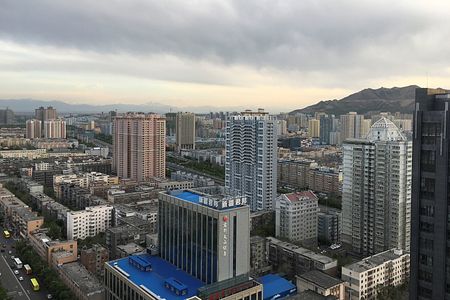By Joe Cash
BEIJING (Reuters) – China on Tuesday set out plans to develop a free trade zone in its northwestern Xinjiang region, rooting it in President Xi Jinping’s ambitious Belt and Road Initiative to connect the country to Europe through economic corridors.
Rights groups accuse Beijing of abuses against Uyghurs, a mainly Muslim ethnic minority that numbers around 10 million in Xinjiang, including the mass use of forced labour in internment camps. China denies any rights abuses.
Opening up Xinjiang as a free trade zone aligns with broader Chinese government plans to boost cross-border trade and infrastructure connectivity across northern China, including in Inner Mongolia and Heilongjiang, Jilin, and Liaoning provinces.
The plan proposes giving officials in Xinjiang greater autonomy to enact policies to attract foreign investors from neighbouring countries, of which all but Afghanistan are members of China’s ambitious project to revive the ancient Silk Road.
Officials from the region’s local government and the Xinjiang Production and Construction Corps will be tasked with establishing the Xinjiang Pilot Free Trade Zone, the plan said.
Xinjiang Production and Construction Corps, was sanctioned by the United States in 2020 – and later Canada and the European Union -for human rights abuses.
In December 2021, the U.S. also enacted the Uyghur Forced Labour Prevention Act, prohibiting the import of goods into the U.S. that are either produced in Xinjiang or by companies listed on the Uyghur Forced Labour Prevention Act Entity List unless the importer can prove that the goods were not produced with forced labor.
Volkswagen investors at a shareholder meeting in May demanded that the carmaker request cooperation from its joint venture partner to conduct an independent audit of labour conditions at a site in Xinjiang.
“It is necessary to firmly establish the overall national security concept…and effectively strengthen the construction of risk prevention and control systems,” the plan from China’s cabinet read.
Chinese officials hope that turning Xinjiang into a free trade zone will also bolster its ambitions to see more countries settle payments in the Chinese yuan, rather than U.S. dollars, particularly when paying for commodities.
(Reporting by Joe Cash and Ryan Woo; Editing by Angus MacSwan)

